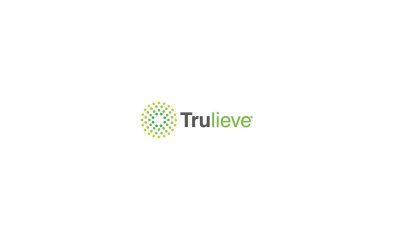/home/grassnews/public_html/wp-content/themes/zox-news/parts/post-single.php on line 153
">
Warning: Undefined array key 0 in /home/grassnews/public_html/wp-content/themes/zox-news/parts/post-single.php on line 153
Warning: Attempt to read property "cat_name" on null in /home/grassnews/public_html/wp-content/themes/zox-news/parts/post-single.php on line 153
A Study Showing Mounting Evidence of Harmful Effects Of WiFi Router Electromagnetic Waves on Sperm to Be Presented at ASPIRE 2019 Congress
HONG KONG–(BUSINESS WIRE)–A new study has provided further evidence that electromagnetic waves
from WiFi devices can have a detrimental effect on human sperm.
The outcome adds weight to concerns that the explosive spread of mobile
telephones and other devices relying on WiFi connection may be
contributing to declining fertility rates in developed countries.
The Japanese study, believed to be the first to trial a WiFi shield to
help protect sperm from the effects of electromagnetic waves, will be
reported at the Asia Pacific Initiative on Reproduction (ASPIRE 2019)
Congress in Hong Kong this week.
Researcher Kumiko Nakata, Head of the Research Division, *Reproductive
Medicine Research Centre, Yamashita Shonan Yume Clinic, said 51 male
patients at the clinic participated in the study from August to November
2018.
Each of the men, whose average age was 38.4 years, were involved in IVF
or artificial insemination procedures at the clinic.
Sperm samples were taken from the men and they were divided into three
groups:
-
a control group whose sperm samples were not exposed to EM waves from
the WiFi router; -
a group whose sperm was protected by a small WiFi shield that
intercepts electromagnetic waves (EM), and - a group whose sperm was exposed to the EM waves.
Kumiko Nakata, whose research focus is on embryology and spermatology,
said sperm samples from participants were placed near a pocket WiFi
router similar to how a mobile phone would be carried in a man’s
trousers.
Exposure to EM waves from the WiFi router occurred over periods of 30
minutes, 60 minutes, two hours and 24 hours, after which sperm motion
was accurately tested using an advanced sperm motility analysis system.
Kumiko Nakata said: “After 30 minutes activation of EM waves, the
motility rate of the control and shield group was 87 per cent, while
that of the exposed group was 88 per cent.
“After 60 minutes, there was also little difference in the sperm
motility rates across the three groups. However, after two hours
activation of EM waves, the motility rate of the control group was 53.3
per cent, the shield group was 44.9 per cent, and the exposed group was
much lower at 26.4 per cent.
“After 24 hours, the dead sperm rate of the control group was 8.4 per
cent, the shield group was 18.2 per cent, and exposed group was 23.3 per
cent, the latter being significantly higher.
“This indicates EM waves from a portable WiFi router decreases the
motile rate and increases the death rate of human sperm.
“Recently, the decrease in fecundity in developed countries has been a
matter of great concern. EM waves are said to be safe, but the shower of
them caused by WiFi devices may be a contributing factor to the
declining fertility trend.
“Our study has shown that over a relatively short time, a WiFi shield
can offer some protection from the harmful effects of the EM waves.
However, there is mounting evidence that the effects of EM waves on
sperm may be having a significant effect on human reproduction.”
The ASPIRE Congress will also be addressed by other speakers raising
concerns about declining male fertility over the past four decades.
The World Health Organisation predicts infertility among males and
females will be the third most serious condition after cancer and
cardiovascular diseases in the 21st century. In the Asia
Pacific region of four billion people, representing about 60 per cent of
the global population, the ramifications of this forecast are enormous.
The ASPIRE 2019 Congress will be held at the Hong Kong Convention and
Exhibition Centre from May 2 to 5.
* The research to be presented at the Congress by Kumiko Nakata is the
result of collaboration between the Reproductive Medicine Research
Centre at Yamashita Shonan Yume Clinic and the Faculty of Life and
Environmental Sciences at the University of Yamanashi.
INTERVIEW
To arrange an interview with Kumiko Nakata, please contact Trevor Gill,
ASPIRE 2019 Congress Media Relations, by e-mail at [email protected]
MEDIA ATTENDANCE
Media representatives wishing to attend the Congress should contact
Trevor Gill at [email protected]
to arrange accreditation.
Telephone contact with Trevor Gill in the Media Room at the Congress
venue will be advised.
Contacts
Trevor Gill
ASPIRE 2019 Congress Media Relations
[email protected]

Warning: Undefined array key 0 in /home/grassnews/public_html/wp-content/themes/zox-news/parts/post-single.php on line 493
Warning: Attempt to read property "cat_ID" on null in /home/grassnews/public_html/wp-content/themes/zox-news/parts/post-single.php on line 493
Cannabis
Sannabis, Inc. (OTC: USPS) Announces First Shipment of Cannabis Essential Oil from Colombia to U.S. to Fill First Order, as the DEA Re-Classifies Marijuana from Schedule I to Schedule III
Humboldt
Humboldt Seed Company partners with Apollo Green to bring California cannabis genetics to the global marketplace
Apollo Green to distribute Humboldt Seed Company clonal cannabis genetics to Germany, Portugal and Australia
SAN FRANCISCO, April 30, 2024 /PRNewswire/ — Humboldt Seed Company (HSC), California’s leading cannabis seed producer, has announced a partnership with Canadian-based Apollo Green to make eight breeder cuts available to researchers, licensed commercial cultivators and home growers in legal markets worldwide. This first-to-market clonal genetics release is a significant milestone and will expand access to distinctive, high-quality cannabis genetics in both established and emerging global markets including Germany, Portugal and Australia.
The curated, breeder-verified selection includes pioneering triploid genetics, such as OG Triploid and Donutz Triploid alongside the legendary cult classic Blueberry Muffin. Also available are All Gas OG with a THC content of 21% and four high-THC strains in the 30-35% range: Golden Sands, Guzzlerz, Jelly Donutz and Orange Creampop. These selections represent the top .01% from HSC’s extensive California pheno-hunting program.
Exports will begin in May under Apollo Green’s Canadian federal cannabis license. All shipments have Canadian phytosanitary certification, ensuring plants have been inspected, and are clean and free of pests.
“Access for all to quality genetics has been our core focus since the beginning,” said HSC Co-founder and Chief Science Officer, Benjamin Lind. “Our science-based approach to breeding aligns perfectly with Apollo Green’s high standards and we are excited to be able to extend these hand-selected cuts to a wider audience, especially at this pivotal time where we’re seeing positive regulatory changes globally.”
Oisin Tierney, Apollo Green Director of Business Development, said, “California has long been recognized for setting industry standards, and we are proud to play a role in bringing these esteemed genetics to cultivators worldwide. The triploids are especially noteworthy in terms of the unprecedented potential for enhanced plant vigor, higher yields, shorter flowering times and superior returns for solventless extraction.”
About Humboldt Seed Company
Established in 2001, Humboldt Seed Company is a Northern California heritage brand providing quality cannabis genetics to commercial cultivators and home growers in legalized states across the U.S. and international markets including Spain, Canada, Jamaica, South Africa, Colombia, France, Portugal, Greece, the UK, Malta and Thailand. With a focus on environmental and social justice, they combine traditional breeding and modern scientific practices in their strain development program. They have served the cannabis community for over two decades.
For more information visit https://humboldtseedcompany.com/.
About Apollo Green
Licensed since 2019, Apollo Green is Canada’s leader in cannabis genetics. The company’s mission is to provide an ever-growing bank of seeds and clones to medical patients and recreational consumers. Apollo Green provides clean, trusted cannabis seeds and clones, which are backed by the foremost tissue culture technology to reduce risks, costs and time-to-market for licensed producers around the world. Apollo Green is passionate about cannabis genetics.
For more information visit https://apollogreen.com/.
Media contact
Jaana Prall
[email protected]
Logo – https://mma.prnewswire.com/media/2328955/Humboldt_Seed_Company_Logo.jpg
![]() View original content:https://www.prnewswire.co.uk/news-releases/humboldt-seed-company-partners-with-apollo-green-to-bring-california-cannabis-genetics-to-the-global-marketplace-302131618.html
View original content:https://www.prnewswire.co.uk/news-releases/humboldt-seed-company-partners-with-apollo-green-to-bring-california-cannabis-genetics-to-the-global-marketplace-302131618.html

Cannabis
Technological Advancements in Breathalyzers Drive Market Growth and Enhance Road Safety
-
Cannabis2 weeks ago
Sannabis, Inc. (OTC: USPS) Unveils Innovative NO LICK! Terpene Spray for Cannabis Products to Enhance CBD and THC to Achieve the Entourage Effect
-
Cannabis2 weeks ago
Cannabis Concentrate Market to Cross US$2.4 Billion by 2030 amid Rising Medical and Recreational Demand
-

 Innocan1 week ago
Innocan1 week agoInnocan Pharma Initiates FDA Approval Process for Liposome Injection Therapy for Chronic Pain
-

 Curaleaf2 weeks ago
Curaleaf2 weeks agoCuraleaf Completes Acquisition of Northern Green Canada
-

 Cannabis1 week ago
Cannabis1 week agoCannabis Capsule Global Analysis Report 2024: Market to Reach $79.2 Billion in 2028 – Forecast to 2033 Featuring GW Pharmaceuticals, Trulieve Cannabis, Green Thumb Industries, Tilray, Columbia Care
-
Cannabis3 days ago
Technological Advancements in Breathalyzers Drive Market Growth and Enhance Road Safety
-

 SCHWAZZE3 days ago
SCHWAZZE3 days agoSchwazze Sets First Quarter 2024 Conference Call for May 15, 2024 at 5:00 p.m. ET
-
Humboldt3 days ago
Humboldt Seed Company partners with Apollo Green to bring California cannabis genetics to the global marketplace















